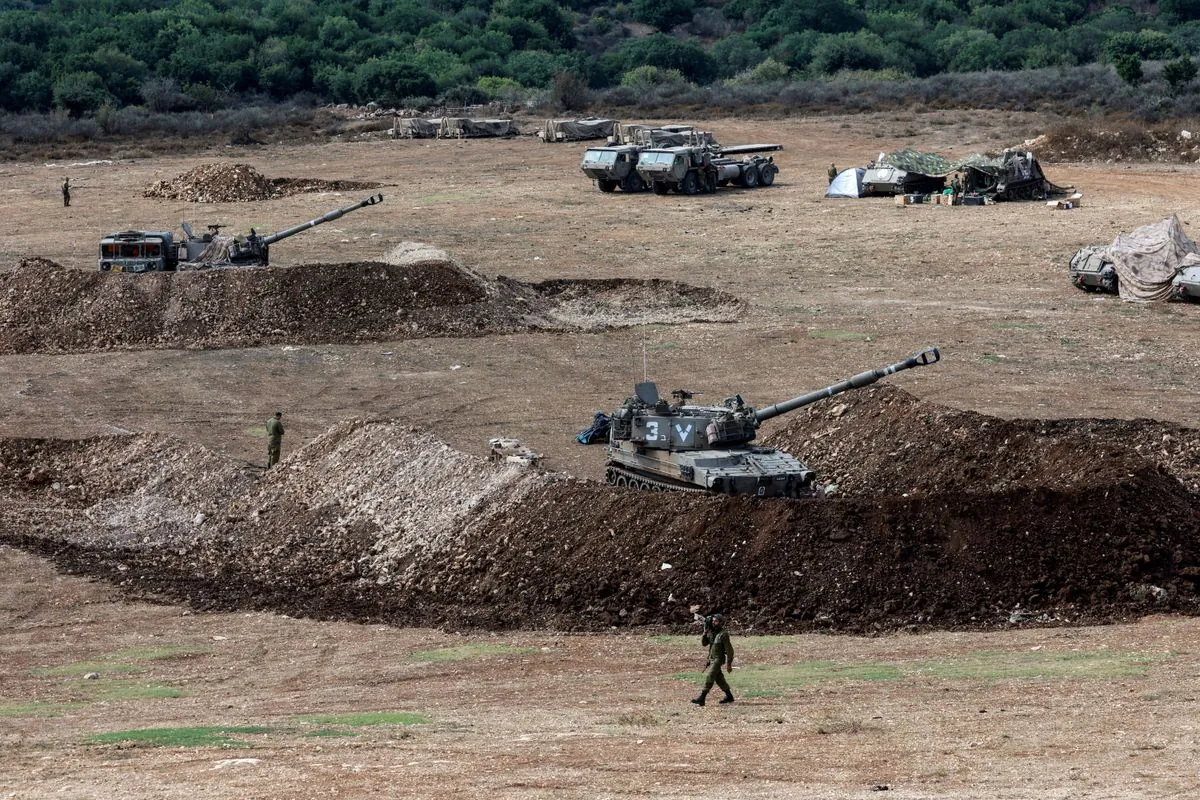The Israel-Lebanon border, a 120-kilometer stretch with a tumultuous history, is once again at the center of escalating tensions. Israel has announced preparations for a potential ground incursion into Lebanon, signaling a significant escalation in the ongoing conflict with Hezbollah.
Lieutenant General Herzi Halevi, Israel's military chief, addressed troops at the northern border, stating, "We are preparing the process of a maneuver." This statement comes as Israel mobilizes two reserve brigades, a move that could see thousands of soldiers ready for action within 24 hours.
The conflict, which has been simmering for nearly a year, took a dramatic turn last week when Israel reportedly targeted Hezbollah's communication devices and assassinated a high-ranking commander. In response, Hezbollah launched a ballistic missile at Tel Aviv, targeting the Mossad headquarters. This marked the first time Hezbollah had fired a long-range missile at the city, located approximately 70 miles from the Lebanese border.
The recent escalation has had severe humanitarian consequences. According to the Lebanese Health Ministry, over 600 people have lost their lives since the intensification of Israeli strikes. The conflict has also led to significant displacement, with the UN reporting that thousands are seeking shelter in Beirut or attempting to flee to Syria.
"The Middle East cannot afford a new displacement crisis."
The international community has expressed deep concern over the situation. Pope Francis called for efforts to stop the "terrible escalation," while U.S. officials, including Secretary of State Antony Blinken and President Joe Biden, emphasized the need for a diplomatic solution.
The current crisis is set against a complex historical backdrop. The Israeli-Lebanese conflict has roots dating back to the 1948 Arab-Israeli War. Israel's 1982 invasion of Lebanon led to an 18-year occupation of southern Lebanon, which ended in 2000 with the establishment of the UN-demarcated Blue Line.
Hezbollah, founded in 1985 as a resistance movement against Israeli occupation, has since grown into a significant political and military force in Lebanon. The group's involvement in the Syrian Civil War since 2011 has further enhanced its military capabilities.
The potential for a prolonged conflict raises concerns about its impact on both countries. Israel, already engaged in operations in Gaza, faces challenges in terms of military resources and economic strain. Lebanon, grappling with an ongoing economic crisis since 2019 and still recovering from the devastating 2020 Port of Beirut explosion, is ill-equipped to handle a full-scale war.
As the situation unfolds, the international community continues to call for restraint and dialogue. The coming days will be crucial in determining whether diplomacy can prevail or if the region will descend into another devastating conflict.
